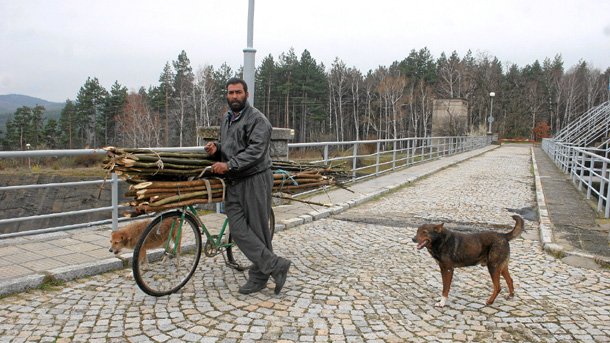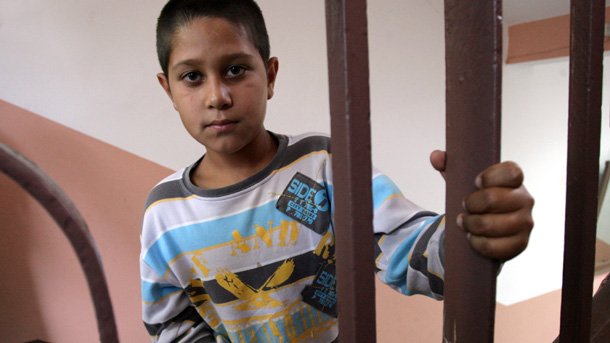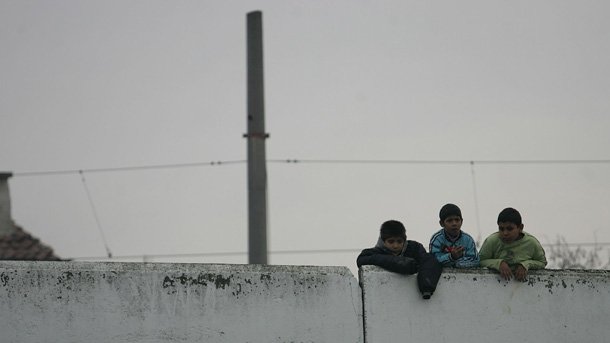It is a difficult task to point out the exact number of Roma people in Bulgaria. According to the official census from 2001, they are about 370,000, while according to Roma organisations, the number reaches 800,000 or 10% of the total population. More accurate data is expected from the latest census, conducted in February 2011. It is a fact the problems of the Roma community in Bulgaria remain unresolved. Roma integration has been an issue in Bulgaria for a number of years but the programmes of the institutions are implemented slowly and do not have much effect.
Bulgaria has adopted a framework program for integration of the Roma community for the period 2010-2020, in accordance to the European principles for human rights protection and tolerance. The document outlines the policy related to the Roma community in the spheres of education, healthcare, housing, employment, etc. Bulgaria became one of the first countries to participate in the Decade of the Roma Inclusion 2005-2015 together with 12 European countries. On the backdrop of Europe’s ageing population, it is the young Roma community that can play a role in solving the lack of employers. That is why the Bulgarian programme pays special attention to raising the education level and qualification of the Roma population. It was reported that during the past two decades about 10,000 Roma have graduated from universities in Bulgaria. However, a great number of Roma children continue to drop out of school, despite the fact that social benefits are received only if one sends their children to school. Here is what Deyan Kolev from the Center for Interethnic Dialogue and Tolerance "Amalipe" says. 
“The number of Roma children dropping out of school continues to be very high. According to statistics the number of Roma children in the first grade is about 23% of the total number but in the 8th grade only 7-8% of the students are of Roma origin.”
The low level of education among the Roma community causes great unemployment. A great number of Roma families live on social payments. This is a great challenge for the integration of the Roma community. 
Statistics from 7 European countries also show that Roma people have more health problems, related to the unhealthy conditions of life. Here is what Ilona Tomova from the Institute of Population Studies to the Bulgarian Academy of Sciences says:
“More than half of the Roma adults suffer from hypertension. 30% have migraine and 25 % suffer from asthma or bronchitis,” Ms. Tomova says. “A great number suffer from arthritis and rheumatism, which leads to more unemployment.”
Bulgarian Roma give birth at an early age and the children’s mortality rate among the community is the highest in comparison to other EU countries. A great number of the Bulgarian Roma live in areas in the cities where living conditions are very poor. Some times even drinking water is missing. The grave problem remains despite the national programme for improving the housing conditions of the Roma community adopted in 2006.

It is clear that Bulgarian institutions will have to pay much more efforts for the successful inclusion of the Roma community, who still rely more on financial report from the state without being very cooperative to the integration processes.
English: Alexander Markov
Photos: BGNES
From February 14 to 16, an event under the motto "Love and Wine" will allow Sofia residents and guests of the city to combine the Bulgarian holiday of wine Trifon Zarezan with Valentine's Day. It will be held on the pedestrian zone..
World Radio Day - 13 February, this year is dedicated to climate change. The choice is no coincidence—2025 has been identified by the Paris Agreement as a crucial year for humanity to achieve its long-term goal of limiting global warming to a maximum of..
“On 13 February this year, Bulgarian consumers must not shop at any of the grocery stores, at any of the chain stores, at any of the supermarkets! On 13 February grocery stores must be left empty, with not a single buyer in them,” the organizers..
World Radio Day - 13 February, this year is dedicated to climate change. The choice is no coincidence—2025 has been identified by the Paris Agreement as a..
Love blooms with renewed vigour every year on 14 February! Valentine's Day is increasingly being celebrated in Bulgaria as a holiday that inspires lovers to..
From February 14 to 16, an event under the motto "Love and Wine" will allow Sofia residents and guests of the city to combine the..

+359 2 9336 661
